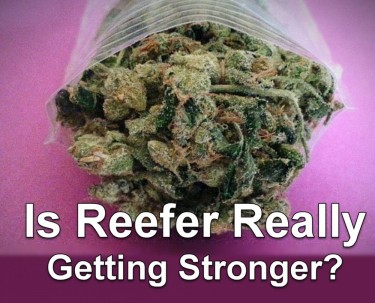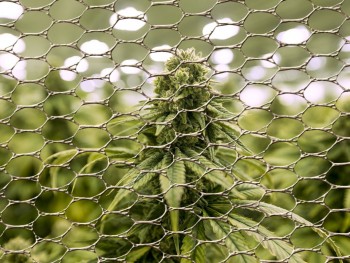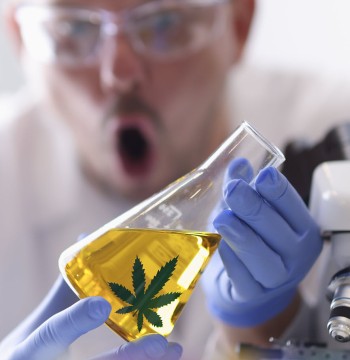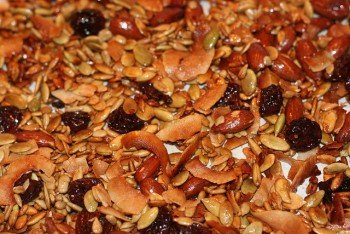
DESTROYING the “Not your Grandfather’s weed” argument with FACTS
You’ve heard it repeated a million times by now, “today’s weed is much more potent than your grandfather’s weed!” This is modern Reefer Madness at its best. I have in the past addressed this in terms of potency, and explained that while the reasoning behind this claim comes from the DEA logging THC quantities for the past 20+ years and with an “increase in THC” over time.
However, in the past there were strains that naturally possessed higher THC levels like Acapulco Gold, Durban Poison, etc.
The fact that the US government didn’t have the diligence in the 1970s, 1980s, and 1990s, to actually test for all consumer weed, that’s on them.
But today, I don’t want to talk about the conflictive statement in this light. On the contrary, I want to talk about another lie that is being pushed in your face and you don’t even realize.
Today, we’re dismantling the “not your grandpas weed” argument with some historic perspectives.
When was weed “not dangerous” according to the US government?
Cannabis prohibition in the United States can be traced back to the early 20th century, but it gained significant momentum during the era of "reefer madness." Prior to this period, cannabis was widely used for medicinal and recreational purposes without major restrictions. However, a political narrative emphasizing the "dangers" of cannabis emerged, leading to its eventual prohibition.
In the 1930s, Harry Anslinger, the head of the Federal Bureau of Narcotics, played a crucial role in shaping the negative narrative surrounding cannabis. He propagated the idea that marijuana was a dangerous drug that led to violence, insanity, and moral degradation. Anslinger's racially motivated remarks contributed to the demonization of cannabis, associating it with minorities, particularly African Americans and Mexican immigrants.
In 1936, the film "Reefer Madness" was released, adding fuel to the fire of the anti-cannabis campaign. The movie depicted exaggerated and sensationalized scenarios of the alleged effects of cannabis, further stigmatizing the plant and fueling public fear.
During World War II, the political narrative around cannabis took a turn due to hemp's crucial role in the war effort. Hemp was used to produce materials like rope, clothing, and other essentials. The government launched the "Hemp for Victory" campaign to encourage farmers to grow hemp to support the war, highlighting its patriotic importance.
However, once the war ended, the political narrative shifted once more to demonize cannabis. Policymakers, including President Richard Nixon, leveraged the "War on Drugs" to further criminalize marijuana and advance their political agendas. Nixon's domestic policy chief, John Ehrlichman, later admitted that the administration's anti-cannabis efforts were designed to target and disrupt minority communities and anti-war protestors.
In the 1980s, during the Cold War, a new stereotype emerged: cannabis users were portrayed as lazy and complacent, hindering the nation's productivity and readiness to defend against external threats. This narrative was used to justify stricter drug laws and punitive measures against cannabis users.
Throughout history, the political narrative surrounding cannabis has been shaped to suit various political needs. Whether targeting minority communities, supporting wartime efforts, or advancing anti-drug agendas, the portrayal of cannabis and its users has been malleable to fit the prevailing political climate.
And as you can see today, the narrative is shifting again.
“Watch out for ULTRA POTENT WEED” that can lead to insanity. Wait, didn’t they say that back in the 1930s?
So if the “less potent weed” of the 1930s also made you kill people and turn violent, and go psychotic – shouldn’t the weed of today make you a serial murderer? Especially since the “THC” is so much more potent than granddaddy’s weed?
I’ll let you chew on that one.
Why are the government lying about cannabis?
Why can’t we have an honest conversation about cannabis?
Two Words – Special Interests.
Going back to the origins of cannabis demonization, figures like Harry Anslinger, the "father of prohibition," had clear motivations to keep cannabis and hemp illegal.
Harry Anslinger, as the head of the Federal Bureau of Narcotics, faced the challenge of maintaining his relevance after the end of alcohol prohibition. Cannabis, along with other drugs, provided him with an opportunity to justify his department's existence and secure his position.
William Randolph Hearst, a powerful newspaper magnate, owned extensive timberland in Mexico and had financial interests in the timber and paper industries. Hemp was emerging as a cost-effective and environmentally friendly alternative to traditional paper derived from trees. Hearst saw hemp as a threat to his business interests and used his media empire to propagate sensationalist stories about "marijuana" and its supposed dangers, which catered to the racist sentiments of the time and vilified Mexicans and other minority communities who were associated with cannabis use.
Furthermore, the invention of the decorticator by George W. Schlichten in the 1930s promised to revolutionize the hemp industry, potentially posing a significant threat to Hearst's paper empire. By linking cannabis to Mexican immigrants and criminality, Hearst and his media outlets played a pivotal role in the smear campaign against the plant.
Du Pont, a major chemical company, was also threatened by the rise of hemp as an industrial product. Hemp-based products, including textiles and plastics, posed competition to Du Pont's newly developed synthetic fibers and plastics. The company actively lobbied against hemp and supported the campaign to criminalize cannabis to protect its business interests.
Fast forward to 1970, President Richard Nixon signed the Controlled Substances Act, classifying cannabis as a Schedule I controlled substance. This move, along with the establishment of the Drug Enforcement Administration (DEA), centralized drug policy and gave pharmaceutical companies a monopoly on creating drugs for medical purposes.
Pharmaceutical companies saw cannabis as a threat to their profits, as studies showed that medical cannabis legalization led to a decrease in the consumption of pharmaceutical drugs like pain pills and anxiety medications. The financial interests of the pharmaceutical industry further contributed to the maintenance of cannabis prohibition and the propagation of negative narratives surrounding the plant.
Throughout the history of cannabis prohibition, "science" has often taken a back seat to the interests of powerful industries. Studies seeking to prove the dangers of cannabis have been funded by entities with a vested interest in keeping the plant illegal, further perpetuating misinformation and stigma surrounding its use.
These are just a few examples. The fact of the matter is that all drug prohibition, in one way or another, boils down to control. Control of medicine, control of commerce, control of industry.
What can you do about it?
Timothy Leary, a psychologist and advocate for psychedelic substances, popularized the phrase "Turn on, Tune in, Drop out" during the 1960s counterculture movement. The slogan encapsulates Leary's philosophy regarding the use of psychedelics as a means of achieving personal and spiritual growth, questioning authority, and rejecting societal norms.
Turn on: This part of the slogan encourages individuals to "turn on" their minds and consciousness through the use of psychedelic substances. Leary believed that substances like LSD had the potential to expand one's awareness and perception, leading to a deeper understanding of oneself and the universe.
Tune in: "Tune in" refers to the idea that by using psychedelics, individuals can attune themselves to higher levels of consciousness, achieving a sense of interconnectedness with others and the natural world. It implies that through altered states of mind, people can access new insights and insights beyond their ordinary perceptions.
Drop out: The final part of the slogan, "Drop out," advocates for a rejection of traditional societal values and structures. Leary encouraged people to free themselves from the constraints of mainstream society, institutions, and authority figures that he believed stifled individuality and creativity. Instead, he promoted the idea of pursuing alternative lifestyles, communal living, and self-discovery.
When it comes to cannabis prohibition and the rhetoric surrounding the policy, it’s time that you;
“Turn on” your mind to independent thinking. While Leary is correct that LSD and similar drugs can enhance cognition, the truth is you don’t need to take drugs to realize the bullshit around cannabis prohibition. Simply activate your critical thinking, remove your emotional responses – and THINK INDEPENDENTLY!
Secondly, “Tune in” – and take a look at the vast majority of users. You can’t tell who smokes weed these days because “everyone” seemingly does. This means that the stereotypes of cannabis are outdated, antiquated and your internal narrative requires an update.
Cannabis is a tool. That’s it. It’s not a demonic force that will bend your will against you. It’s simply a plant with psychoactive effects. How you respond with it, is entirely an individual and unique experience.
Finally, “Drop out” – this is probably the best hack you’ll learn today. “STOP WATCHING MAINSTREAM NEWS OR TV”
If you’re still following “the news” for advice and insight, you’re being controlled by the Pharmaceutical industry who just so happens to fund the majority of media outlets sanctioned by the government. I stopped watching TV in the early 2000s and I couldn’t be happier.
Drop out of their narrative, ignore their bullshit. Think independently.
The more people that can do this, the more the establishment loses their power over society.
This is my hope with this article – for you to realize that the propaganda evolves, but the underlying objective remains – CONTROL, CONTROL, CONTROL!







